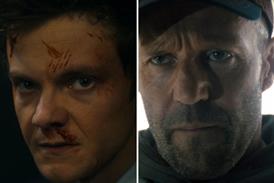European Commissioner Günther Oettinger’s proposals for a Single European Copyright Title has now received from support from some quarters in the European Parliament (EP) in Strasbourg.
In a motion for a parliamentary resolution on the harmonisation of certain aspects of copyright and related rights in the information society, MEP Julia Reda of the EP’s Committee on Legal Affairs declared that „it seems common-sense that one of the main objectives of the Digital Single Market should be removing territorial restrictions and encouraging pan-European accessibility of services.“
She argued that „such progress can be deemed integral and inherent to the notion of a Digital Single Market and is an important step towards fostering innovation and competitiveness of European businesses.“
The idea of replacing the principle of territoriality in copyright with a single European market also found favour with certain fellow MEPs in the EP’s Committee on Culture and Education when they tabled 101 amendments to Polish MEP Bogdan Wenta’s report on European film in the digital era.
Isabella Adinolfi stressed in one of her amendments „the need to update the regulatory framework provisions“ [..] „so as to bring them more closely into line with technological progress over the last decade, in particular digitisation“, while Martina Michels and Liadh Ní Riada suggested that the development of cross-border portability of audiovisual services, taking account of the rapid growth of VOD and online transactions across the Union, „could be further explored with the creation of copyright regulated at European level.“
Undeterred
Commissioner Oettinger appears undeterred by the controversy his proposals to replace the principle of territoriality in copyright caused within the European film community after his keynote speech at the Creative Europe MEDIA Conference on February 9.
In fact, Oettinger returned to Berlin whilst the festival was winding down for the Startup Europe Summit pop-up conference where he spoke – in English – in a „fireside chat“ about his vision of a digital single market.
Speaking about the Commission’s plans for copyright, he said that „28 different legislations aren’t really convincing and players from outside of Europe don’t accept 28 different copyrights“ and wanted to achieve
„a balanced solution between our users, our net community [..] and, on the other hand, the owners of intellectual work who are interested in carrying on with their jobs.“
„If there is no market and intellectual work has no value, at the end of the day, nobody will be prepared to take this job. And then we have to survive with just Shakespeare, Schiller and Udo Jürgens. But we need to have the next generation of Shakespeare, Schiller and Udo Jürgens,“ he remarked.
Oettinger reiterated this argument in another keynote speech given yesterday (Feb 24) at the Digital 4EU Stakeholder Forum in Brussels and announced that he intends to submit the first draft of legislation for a Single European Copyright by the middle of this year.
Before this, he will be fielding questions and comments in a one-hour tweet session tomorrow (Feb 26) from 15:30 (CET) at the #AskOettinger hashtag.
Riposte
Just a matter of hours after Oettinger’s Brussels keynote, Germany’s State Minister for Culture and Media Monika Grütters delivered a firm riposte to the Commission’s proposals for copyright reform at a public event in Berlin.
Speaking at the German Content Alliance’s discussion on creativity and copyright law in the digital world, Grütters stated that she rejected „considerations [on a European level] for an abolition of territorial restrictions. In the area of film, for example, the acquisition or sale of licenses only for individual member states must remain possible in the future as well. We need to continue having differentiated business models.“
TV series and funding come under MEP spotlight
The growing success of high-end European TV series, the imbalance between funding for production and distribution, and the proposed budget for the Creative Europe Guarantee Facility also attracted the attention of MEPS tabling amendments to the Wenta report.
In one new resolution, a group of MEPs including the report’s author and UK MEP Emma McClarkin highlighted the „strategic importance“ of further encouraging the production, distribution and promotion of high-quality European TV series on the European and global markets, while Italian MEP Isabella Adinolfi considered it „necessary to increase funding in real terms for film distribution, promotion and marketing withoutthis being at the expense of funding for production.“
Moreover, German MEPs Petra Kammerevert and Helga Trüpel proposed that „all those who benefit economically from European cinematographic works, even if indirectly, through direct provision, marketing or dissemination, including links or provisionby means of video on demand, should contribute financially to the making of European films.“
Finally, Adinolfi tabled a new resolution declaring that the funding currently earmarked for Creative Europe’s Guarantee Facility as being „totally inadequate“ and calling for a „substantial increase“ in its budget [of € 120m ] „without this being at the expense of funding for the programme as a whole or any of the other educational and cultural programmes.“
Georgia joins Creative Europe programme
European Commissioner for Education, Culture, Youth and Sport Tibor Navracsics and Georgia’s Minister of Culture and Monument Protection Mikheil Giorgadze signed an Agreement on Georgian participation in the Creative Europe Programme in Brussels yesterday (Feb 24).
Georgia is the first neighbourhood country to join the programme, and, as of this year, Georgian organisations will also be able to participate in audiovisual training events and festivals. (ends)
























No comments yet